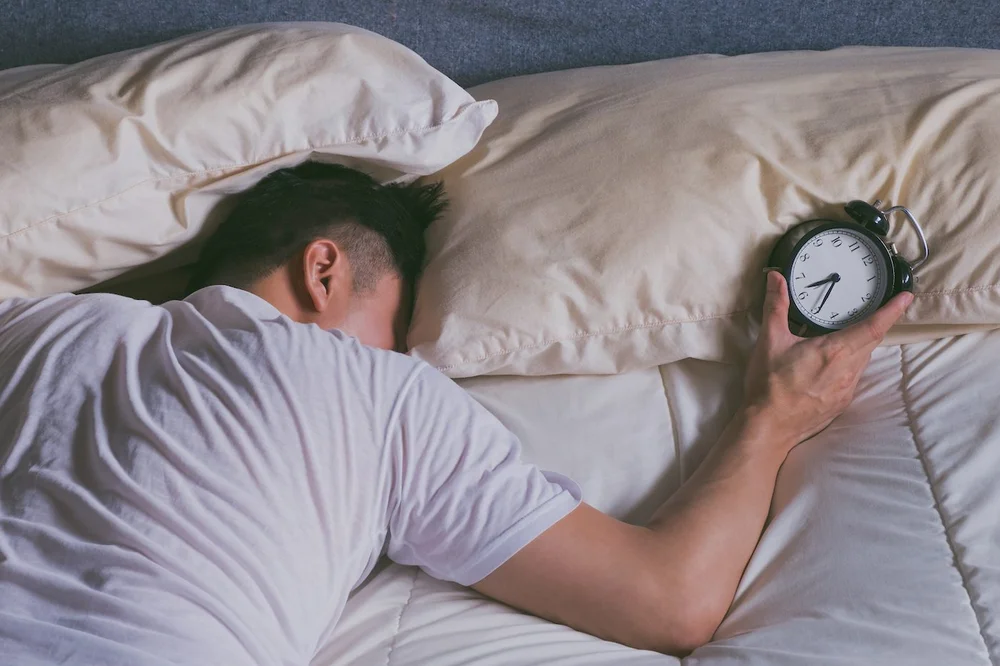What Are the Dangers of Being a Night Owl?
Medically Reviewed by Dr. Nicole Avena
I’m like Batman.
Am I a billionaire playboy who runs his deceased parent’s multi-billion-dollar corporation? No.
Have I been trained in several forms of martial arts and regularly fight off a variety of criminals and supervillains? Nope.
Do I have access to cutting-edge weapons, cars, and planes? I wish!
So how am I like Batman?
I’m a creature of the night.
Or, to put it a different way, I’m a night bat…er, night owl.
What’s a Night Owl?
Named after the nocturnal bird, night owls are people who tend to stay up late into the evening or even into the early morning hours.
Night owls may:
- Have more energy in the evening
- Stay up late
- Struggle to stay alert during the day
- Enjoy sleeping in
Night owls may choose to stay up late or may be required to do so by their job (shift work).
Some may find it difficult to turn their brain off until the wee hours but may have no problem getting to sleep once their head hits the pillow. That means night owls may not struggle with a sleep disorder, such as an inability to fall asleep or experiencing consistent sleep loss.
Advantages of Being a Night Owl
According to research, night owls may perform well on measures of cognitive ability, memory, and processing speed, even when those tasks take place in the morning. Though not always the case, night owls can be more creative than early birds. Night owls also may be more open to seeking out and engaging in new experiences.
Many night owls catch a second wind in the late afternoon or evening. This may lead to more productivity later in the evening after everyone else has gone home from work.
Some may enjoy their greatest periods of productivity and creativity after the rest of the world has gone to bed. This includes many artists, musicians, and writers.
Disadvantages of Being a Night Owl

Whether due to parental responsibilities or a demanding work schedule, many night owls may need to get up early in the morning, which can translate to a lack of sleep. Getting less than 6 hours of sleep each night has been associated with lower overall brain activity.
The delayed sleep phase experienced by night owls may lead to morning drowsiness, poor concentration, and even serious sleep issues. Ongoing sleep problems can cause performance problems (at school or work) and mood issues.
Can a Night Owl Change?
As with any habit, change takes time…and intentionality. If the night owl life is working for you, you may not need to adjust your lifestyle. However, if you’re noticing any ill-effects from your sleep pattern, it might be time for a change.
Shifting your sleep schedule will require a period of adjustment. The transition may require a lot of patience, both for you and those you live with. Incremental changes are recommended to help make the alteration of your sleep period as seamless as possible.
Also, keep in mind that your natural sleep cycle may change over time. It’s common for those entering middle age or their later years to become early risers.
Regardless of what time you prefer going to bed, here are some top tips for how to have better quality sleep…
5 of the Best Ways to Improve the Quality of Sleep for Night Owls
Regular Sleep Habits
Go to bed at the same time each night and wake up at the same time each morning, even on weekends. Instead of taking a nap to make up for lost sleep, power through until bedtime to maintain a regular sleep schedule. Taking naps when you feel sleepy during the day can disrupt your nighttime sleep cycle.
Increase Your Melatonin
Melatonin is the main sleep hormone and is central to all the body’s mechanisms for promoting restful sleep and healthy sleep patterns. It’s made and released from the brain during the night to naturally regulate the body’s 24-hour circadian rhythms and sleep/wake cycle. Increasing your melatonin, by taking a high-quality sleep supplement, might help you get to sleep and stay asleep throughout the night.
Try Sound Therapy
If you struggle to block out noise, try sound therapy, which can induce a peaceful mood and help lull you to sleep. Consider soothing nature sounds, wind chimes, a fan, or soft music. Slower classical music, or any music that has a slow rhythm of 60 to 80 beats per minute, may help with sleep onset.
Practice Good Sleep Hygiene
Though often associated with cleanliness, hygiene also applies to behavioral practices designed to sustain optimal health. Sleep hygiene is extremely important for a person’s brain health, physical health, and overall well-being. Limiting caffeine in the afternoon/evening, reducing stress, and not eating or exercising at least two hours before bed are proven sleep hygiene strategies.
Enlist the Help of Family
Ask family members to keep you accountable with maintaining a consistent sleep schedule. You can have them do a countdown every hour or half hour up to the time you’ve chosen to turn in for the night.
If you’re single, set your phone or other device to give you prompts reminding you of your desired bedtime. This may help you wrap up projects/activities in a timely manner and mentally prepare you for a good night’s sleep.
Quality, Restful Sleep
Getting high-quality sleep is essential to health and well-being. Whether you stay up late or turn in early, it’s recommended that adults get 7 to 9 hours of sleep each night.
Following the above tips can help ensure you get quality, restful sleep. However, if you experience long-term sleep issues, seeking professional help, from a doctor or sleep specialist, is a good idea. They can give you some sleep strategies and help get to the root of your sleep issues.
If you’ve noticed any negative effects from staying up late, it might be time to reconsider the night owl life. Though it might be hard at first, stopping a project, turning off the TV, putting down the book, and hitting the hay can pay health dividends in the future.
Just remember, you can’t accomplish everything in one day (or night).
If you could, you’d be Batman.
At BrainMD, we’re dedicated to providing the highest purity nutrients to improve your physical health and overall well-being. For more information about our full list of brain healthy supplements, please visit us at BrainMD.
- This Is What You Need to Know About HBOT
Medically Reviewed by Dr. Nicole Avena - April 22, 2024 - Hormone Changes in Men: How to Know If You Have Low Testosterone! - April 15, 2024
- This Is What You Need to Know About EMDR Therapy! - April 11, 2024




Usingi Batman as a strategy in this article, is Sweet, draws me into the article with Joy, fun. Very helpful practical tips. I thank u so much.
I am a morning person. However, my problem is getting enough sleep. I wake up after five hours of sleep and can not get back to sleep. How can I get more sleep without relying on medication? If I make sure to eliminate electronic devices (tv, tablet, and computer) an hour before bedtime, I can sometimes make it to six hours of sleep.